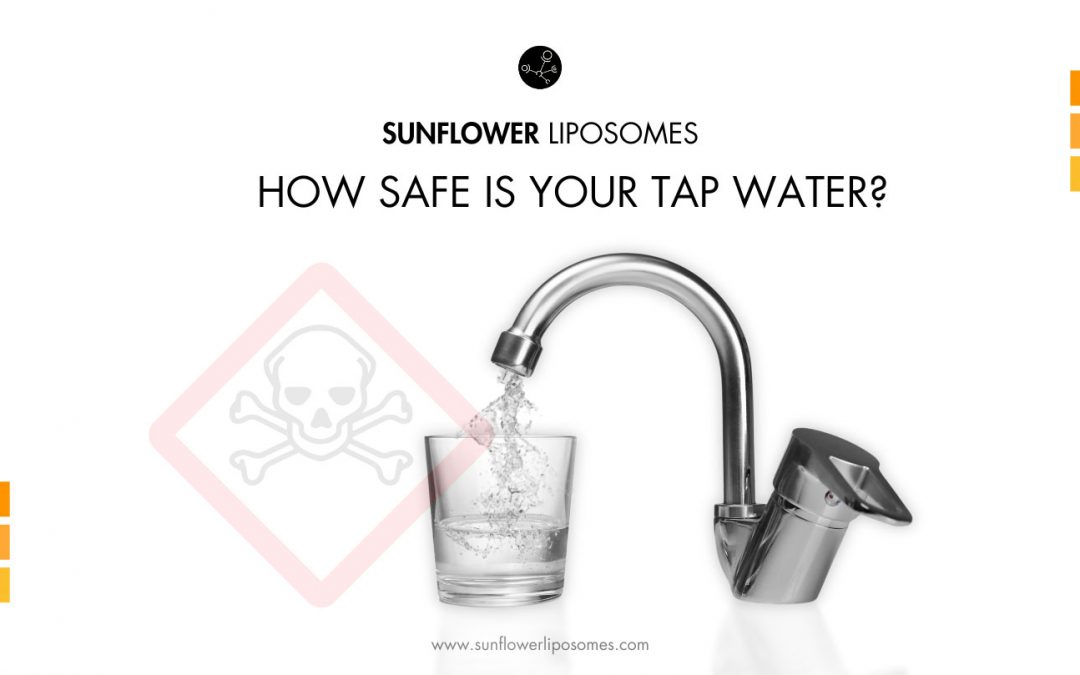At Sunflower Liposomes, we believe that health starts with the basics, such as the quality of the water we drink.
With the recent European Court of Justice ruling against Ireland for failing to protect our drinking water from trihalomethanes (THMs), the need for clean, filtered water has never been more urgent. THMs, harmful byproducts of chlorine disinfection, have been linked to serious health risks, including cancer. Chlorine itself is already a toxin, negatively impacting our health.
This highlights the critical need for effective water filtration in our homes.
The quality of our drinking water can significantly impact our health and well-being. While Ireland’s water treatment systems work hard to ensure safety, the natural presence of organic matter in our water sources can lead to THM formation when chlorine is added. This underscores the importance of taking individual action to maintain our health at its best. These chemicals have been associated with long-term health risks.We need to take steps to remove toxins and chlorine from our bodies.
Investing in water filtration is more than a health measure; it’s a step towards a healthier future for ourselves and our environment. By ensuring our drinking water is as clean and pure as nature intended, we support our bodily functions, prevent diseases, and contribute to our overall health enhancement. Let’s prioritise the quality of water we drink, for our health’s sake and for the generations to come.
However, what about the toxins we have already consumed through tap water?
Understanding the impact of toxins and taking proactive steps towards cleaner water and detoxifying our bodies will make a huge difference to our health. Here are some common health impacts associated with waterborne toxins:
1. Gastrointestinal Issues:
Contaminated Drinking Water: Ingesting water contaminated with toxins, such as bacteria, viruses, or parasites, can lead to gastrointestinal problems. Common symptoms include diarrhea, nausea, vomiting, and stomach cramps.
2. Infectious Diseases:
Waterborne Pathogens: Toxins can include microbial contaminants, leading to waterborne diseases such as cholera, giardiasis, cryptosporidiosis, and other infections that affect the digestive and intestinal systems.
3. Respiratory Problems:
Airborne Toxins: Toxins in water can sometimes become airborne, leading to respiratory issues when inhaled. For example, the release of toxins from contaminated water bodies may contribute to air pollution, affecting respiratory health.
4. Chronic Health Conditions:
Heavy Metals: Long-term exposure to water contaminated with heavy metals (e.g., lead, mercury, arsenic) can result in chronic health conditions. These may include neurological damage, developmental issues in children, kidney damage, and an increased risk of certain cancers.
5. Endocrine Disruption:
Chemical Toxins: Certain toxins, such as endocrine-disrupting chemicals (EDCs), may interfere with the body’s hormonal system. Exposure to EDCs in water has been linked to reproductive issues, developmental abnormalities, and hormonal imbalances.
6. Skin Irritation:
Chemical Contaminants: Exposure to certain chemical contaminants in water can cause skin irritation, rashes, or allergic reactions. This is particularly true for water containing industrial pollutants or harsh chemicals.
7. Bioaccumulation:
Contaminated Fish and Seafood: Toxins in water may accumulate in fish and seafood. Consuming contaminated aquatic organisms can lead to the bioaccumulation of toxins in the human body, resulting in long-term health risks.
8. Cancer Risk:
Carcinogenic Toxins: Exposure to certain carcinogenic toxins in water, such as certain pesticides and industrial pollutants, may increase the risk of cancer over time.
It is essential to address and mitigate water pollution to protect public health. Regular monitoring of water quality, implementation of effective water treatment processes, and adherence to regulatory standards are crucial in minimizing the health risks associated with toxins in water. Public awareness and education also play a vital role in promoting safe water practices and minimizing exposure to contaminants.
As we continue to advocate for clean drinking water, we also remind ourselves of the small, basic steps we can take every day towards a healthier life.
Incorporating Vitamin C in its liposomal form, as it is the most bioavailable for our bodies, provides an easy and straightforward way to support daily detoxification.
Not only does Vitamin C naturally help combat heavy metal toxicity in the body, but it is also essential for healing wounds, producing collagen, and forming important proteins for blood vessels, ligaments, tendons, cartilage and skin.
https://www.ncbi.nlm.nih.gov/pmc/articles/PMC4824718/
https://www.ncbi.nlm.nih.gov/pmc/articles/PMC3783921/
Lead Found in Drinking Water of Multiple Irish Properties – DCU Water Institute


Recent Comments